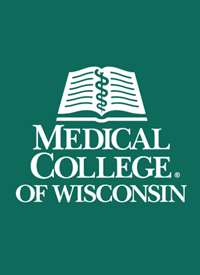Medical College of Wisconsin Child Advocacy and Protection Child Abuse Pediatrics Fellowship

A Message from Our Program Leadership
To achieve resilience and wellness as a healthcare provider, it is important to surround ourselves with individuals who inspire us to achieve our full potential as providers and as people. As a member of the Child Advocacy and Protection Services program, I am honored to work with a cohesive group of highly professional individuals who share my commitment to the safety and well-being of children. We strive to provide our fellows with a well-rounded, innovative, and immersive experience that promotes excellence in clinical care and scholarly activity and a deep understanding of the community systems that impact child safety. Our team is also dedicated to fostering the qualities of balance, integrity, and life-long learning critical to the field of Child Abuse Pediatrics.
We hope you will explore this website further to learn more about what our educational program offers and consider a visit to meet our exemplary team.
 Angela Rabbitt, DO, FAAP
Angela Rabbitt, DO, FAAP
Program Director, MCWAH Child Abuse Pediatrics Fellowship
Medical Director, Child Advocacy and Protection Services
 Rachel Segal, MD, MPH
Rachel Segal, MD, MPH
Associate Program Director, MCWAH Child Abuse Pediatrics Fellowship
Meet Our Current Third-Year CAP Fellow
Hear from our current fellow, Kristin, as she discusses our program, our curriculum and our institutions.
A Conversation with Past CAP Fellows
Two fellows discuss their experience as part of our Pediatric Child Advocacy fellowship at the Medical College of Wisconsin in Milwaukee, Wisconsin.
Meet Our CAP Fellowship Program Faculty
Members of our faculty discuss our fellowship program, our institutions, and living and training in Milwaukee.
As a CAP fellow you will...
- Experience a dynamic and progressive training environment
- Receive rigorous training in quality improvement, clinical, translational, and educational scholarship
- Utilize our diverse patient population and community partnerships to foster collaborative and compassionate patient care and systems-based practice skills
- Learn to effectively advocate for the medical and psychosocial needs of patients and families
- Build skills to educate a variety of medical and community-based learners
About Our Institutions
Medical College of Wisconsin (MCW)
The Medical College of Wisconsin brings together the most inquisitive minds in science, medicine, education and community engagement to solve the toughest challenges in health and society today. Academic medicine is at the core, where scientists, physicians and students work hand-in-hand with the community to ask the questions no one else is and fuel the continuous cycle of knowledge that’s shaping the future of medicine.
Children’s Wisconsin
Children’s Wisconsin is the region’s only independent health care system dedicated solely to the health and well-being of children. We offer a wide range of care and support for children of all ages. Our services include medical care, dental care, child and family counseling, foster care, adoption, social services, child advocacy and injury prevention.
About Our Fellowship
Our Fellowship in Photos
The CAP Fellowship program at Children’s Wisconsin and Medical College of Wisconsin is unlike any other. The necessary breadth, depth and volume of training is embedded in a collaborative, compassionate, nationally-recognized group that prepares and trains their fellows at the highest level.
-A Graduated Fellow
Meet Our Team

Angela Rabbitt, DO
Professor of Pediatrics, Section of Child Advocacy and Protection; Medical Director, Child Abuse Pediatrician, Child Advocacy and Protection Services; Director, Child Abuse Pediatrics Fellowship Program

Rachel Segal, MD, MPH
Assistant Professor of Pediatrics, Section of Child Advocacy and Protection

Connie Chase, BS, C-TAGME
Fellowship Coordinator, Child Advocacy and Protection, Pediatric Endocrinology and Neonatal Perinatal, and FACTS

Sara Kreuter
Administrative Assistant Sr.
Contact Us
Child Advocacy & Protection
Children's Corporate Center
Suite 360
P.O. Box 1997
Milwaukee, WI 53201-1997
(414) 266-3157 (fax)
Angela Rabbitt, DO, FAAP
Fellowship Director
Connie Chase
Fellowship Coordinator




